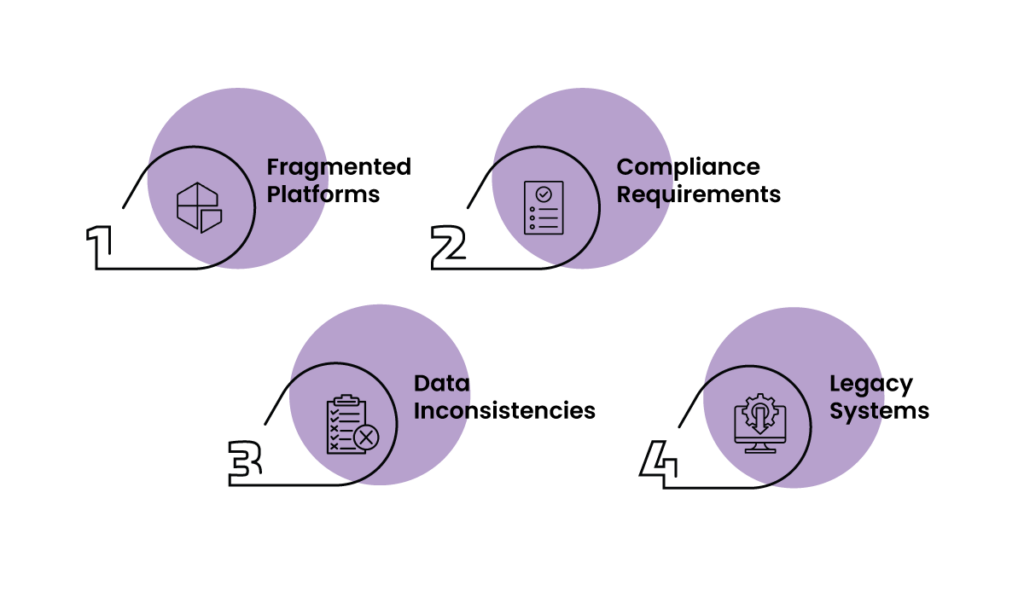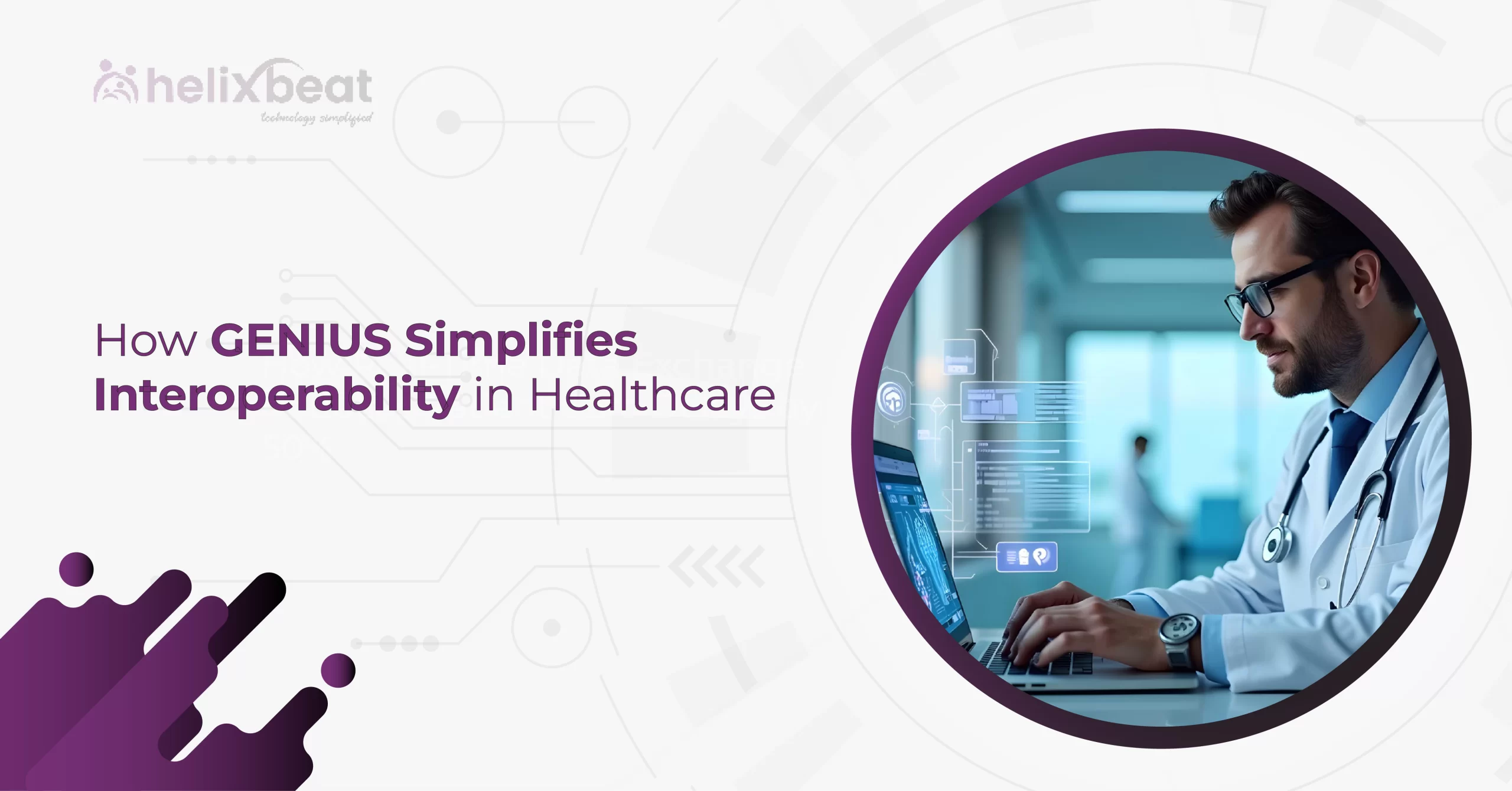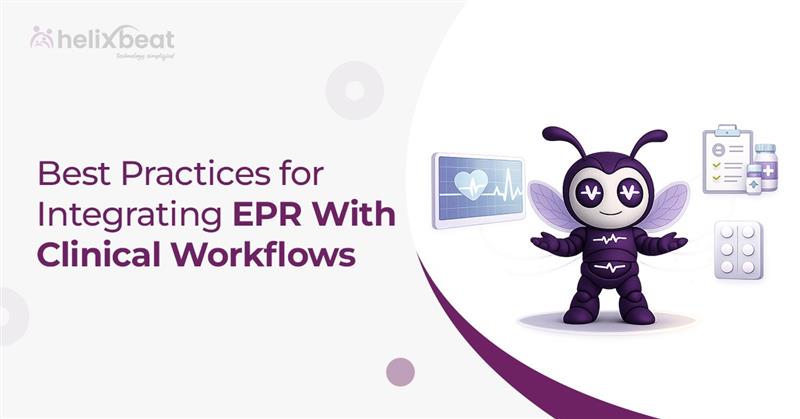Healthcare interoperability bridges the gaps between fragmented systems, enabling efficient communication and better outcomes. Without it, delays, errors, and inefficiencies can compromise patient care and inflate costs. This blog explores how GENIUS, a cutting-edge platform, simplifies healthcare interoperability with robust APIs, compliance tools, and data standardization solutions, making it easier for developers to build scalable and efficient healthcare systems.
Table of Contents
What Does Interoperability in Healthcare Mean?
Interoperability in healthcare ensures that various healthcare systems—EHRs, labs, pharmacies, and insurance providers—can exchange, interpret, and use data seamlessly. It fosters collaboration between entities, streamlines workflows, and ultimately improves patient care.
Why It’s More Than Just Technology?
Interoperability isn’t just about connecting systems; it’s about enabling better decision-making. For example, seamless access to lab results or medication histories can prevent adverse drug interactions, improve diagnosis accuracy, and speed up treatment. This makes interoperability a cornerstone of modern healthcare.
The Challenges of Achieving Healthcare Interoperability
Developers often encounter several obstacles when trying to integrate healthcare systems. These challenges create delays, inefficiencies, and missed opportunities for better care.
- Fragmented Platforms: Different providers use incompatible software systems, making integration challenging.
- Compliance Requirements: Regulations like HIPAA require strict adherence, leaving little room for error.
- Data Inconsistencies: Diverse data formats and standards hinder seamless communication.
- Legacy Systems: Many healthcare organizations still rely on outdated technology, making integration a daunting task.

The Real-World Impact of Poor Interoperability
Without interoperability, patient care suffers. Delayed data sharing, duplicate testing, and communication breakdowns result in wasted resources and increased risks. For instance, a lack of real-time data exchange during emergencies can lead to life-threatening consequences.
How GENIUS Simplifies Interoperability in Healthcare?
APIs are critical for enabling interoperability in healthcare, acting as bridges between diverse systems. GENIUS provides robust APIs designed specifically to simplify integration and accelerate data sharing.
Why APIs Are Key for Interoperability?
APIs reduce the complexity of connecting systems by automating data sharing and processing, removing manual inefficiencies. Developers can connect different systems without having to build custom interfaces from scratch.
How GENIUS APIs Work?
- Customizable: Tailor APIs to suit specific project requirements, whether for small clinics or large hospital networks.
- Pre-Tested: Minimize development cycles with pre-tested, ready-to-use code snippets.
- Real-Time Data Flow: Enable instant communication between EHRs, labs, and pharmacies, improving response times during critical situations.
Real-Life Example
A hospital system integrated GENIUS APIs to connect its EHR and diagnostic lab. The result? Record-sharing times were reduced by 80%, and patient care became more efficient.
Automating Compliance with GENIUS Tools
Compliance is a significant challenge for healthcare developers. GENIUS makes it simpler by automating regulatory adherence, saving time and minimizing risks.
Features That Simplify Compliance
GENIUS incorporates several features that help developers stay compliant with industry standards:
- Built-In Validation: Ensures every data interaction adheres to regulatory requirements.
- Audit Trails: Maintain detailed records of data access and usage, providing transparency and accountability.
- Secure Encryption: Protect sensitive patient information with industry-standard encryption techniques.
Why Compliance Automation Matters?
Compliance automation is essential in healthcare, where adherence to regulations like HIPAA, and CMS is non-negotiable. By automating compliance processes, developers can shift their focus from time-consuming manual validations to building innovative and efficient solutions.
Automation ensures that data sharing adheres to industry standards, reducing the risk of breaches, fines, and legal liabilities. It also strengthens organizational transparency with features like audit trails and secure encryption. For healthcare organizations, compliance automation not only mitigates reputational risks but also fosters trust among patients by safeguarding sensitive data and ensuring regulatory accountability at every step.
FUSION- Standardizing Healthcare Data
Data formats vary widely across healthcare systems, leading to errors and inefficiencies. FUSION, a core product of GENIUS, converts diverse datasets into FHIR-compliant formats, ensuring they can be interpreted and shared seamlessly.
Key Benefits of FUSION
- Error-Free Communication: Reduces the risk of data misinterpretation caused by mismatched formats.
- Enhanced Collaboration: Ensures that data can be shared across organizations without additional formatting.
- Future-Ready Systems: Prepares healthcare systems for emerging technologies like AI and IoT.
Real-World Impact
A healthcare provider that implemented FUSION reduced duplicate lab testing by 25%, saving $200–$400 per patient annually. This not only cut costs but also improved the patient’s experience.
AERIS- Enabling Real-Time Data Exchange
In healthcare, delays can have life-threatening consequences. AERIS ensures that critical information flows between systems instantly, enabling faster diagnoses and better decision-making.
Features of AERIS
- Plug-and-Play Integration: Works seamlessly with existing systems, eliminating the need for expensive upgrades.
- Operational Insights: Provides real-time analytics, helping healthcare providers make informed decisions quickly.
- Workflow Optimization: Automates data exchange, reducing processing times by 50%.
Use Case
A diagnostic center using AERIS improved the speed of lab result delivery by 75%, enabling physicians to make quicker, more accurate decisions.
PULSE- Securing Data and Building Trust
Incomplete or insecure records not only lead to compliance risks but also erode patient trust. PULSE ensures that data remains secure, accurate, and tamper-proof.
Key Features of PULSE
- Immutable Records: Prevents data tampering, building trust between patients and providers.
- Patient Empowerment: Allows patients to access and control their health records securely.
- Faster Dispute Resolution: Speeds up insurance claims and other administrative processes.
Real-World Benefits
A healthcare provider resolved 25% of its claims disputes faster by using PULSE, reducing administrative costs significantly.
How GENIUS Leverages APIs and Compliance Tools?
Developers face unique challenges when integrating healthcare systems, including data standardization, compliance, and scalability. GENIUS simplifies these hurdles with its robust APIs and compliance-ready tools.
How Developers Benefit?
- Customizable APIs: Tailored for different project needs, enabling seamless system connections.
- Compliance Automation: Ensures data sharing meets all regulatory requirements.
- Time-Saving Tools: Pre-tested solutions and detailed documentation reduce development timelines.
Why Do Developers Choose GENIUS?
Developers choose GENIUS because it eliminates the technical hurdles of healthcare interoperability and compliance. With robust APIs, automated validation for regulatory standards, and pre-tested solutions, GENIUS enables faster integration. By simplifying complex tasks, developers can dedicate their time to building scalable, secure, and innovative healthcare solutions that drive better outcomes.
Why GENIUS Is the Ultimate Solution for Healthcare Interoperability?
Interoperability is a cornerstone of efficient healthcare and GENIUS excels in addressing its challenges. With a developer-centric approach, it ensures seamless integration, scalability, and compliance, empowering organizations to deliver better care.
Designed with Developers in Mind
GENIUS is crafted to remove the complexity of integrating diverse healthcare systems. Its intuitive tools and customizable APIs streamline data exchange, allowing developers to focus on innovation rather than navigating technical hurdles. By automating tasks like data standardization and compliance validation, GENIUS saves time, reduces errors, and accelerates the development of secure, interoperable healthcare solutions.
Comprehensive and Scalable
GENIUS adapts to the diverse needs of healthcare organizations, from small clinics to expansive hospital networks. Its scalable architecture handles growing data volumes and system demands effortlessly. Whether integrating multiple systems or preparing for emerging technologies like AI and IoT, GENIUS ensures flexibility, future readiness, and seamless collaboration across organizations of any size.
GENIUS Redefines Interoperability in Healthcare
Interoperability in healthcare is essential for improving workflows, enhancing patient care, and reducing costs. GENIUS simplifies this process by providing APIs, compliance tools, and real-time data-sharing capabilities.
For developers seeking efficient, scalable, and secure solutions, GENIUS is the platform of choice. Explore its features today and take the first step toward revolutionizing healthcare with seamless interoperability.
FAQs
- What is healthcare interoperability?
Healthcare interoperability is the ability of different systems to exchange and interpret patient data seamlessly.
- How does GENIUS simplify interoperability?
GENIUS offers APIs, data standardization tools, and compliance automation to streamline system integration and data exchange.
- What are the key products of GENIUS?
GENIUS includes AERIS for real-time data exchange, FUSION for standardization, and PULSE for secure record-keeping.
- Can GENIUS handle compliance requirements?
Yes, GENIUS automates adherence to HIPAA, and CMS regulations, reducing the risk of non-compliance.
- What makes FUSION essential for developers?
FUSION converts diverse data formats into FHIR-compliant versions, ensuring interoperability and eliminating errors.
- How does PULSE improve data security?
PULSE creates tamper-proof records and provides secure access to patient data.
- Why are APIs important for interoperability?
APIs enable seamless communication between systems, allowing real-time data sharing and integration.
- Is GENIUS scalable for large healthcare systems?
Yes, GENIUS is designed to scale with growing data volumes and system demands.
- How does AERIS optimize real-time data sharing?
AERIS reduces delays in data exchange, enabling faster decision-making and care delivery.
- Why should developers choose GENIUS?
GENIUS simplifies development with robust APIs, compliance tools, and future-ready features, making it an ideal choice for healthcare solutions.














